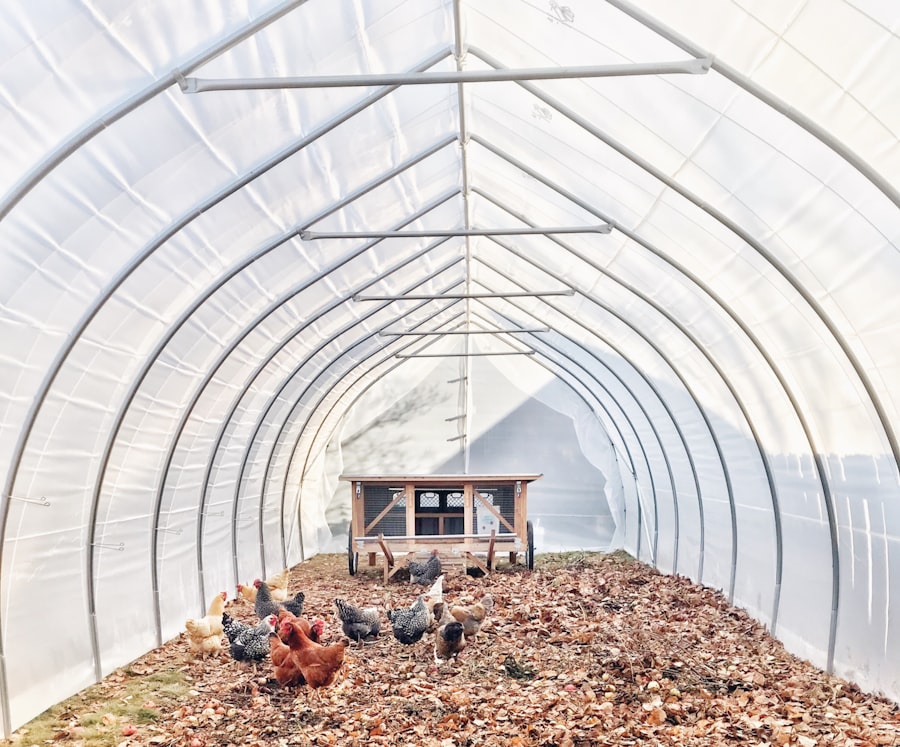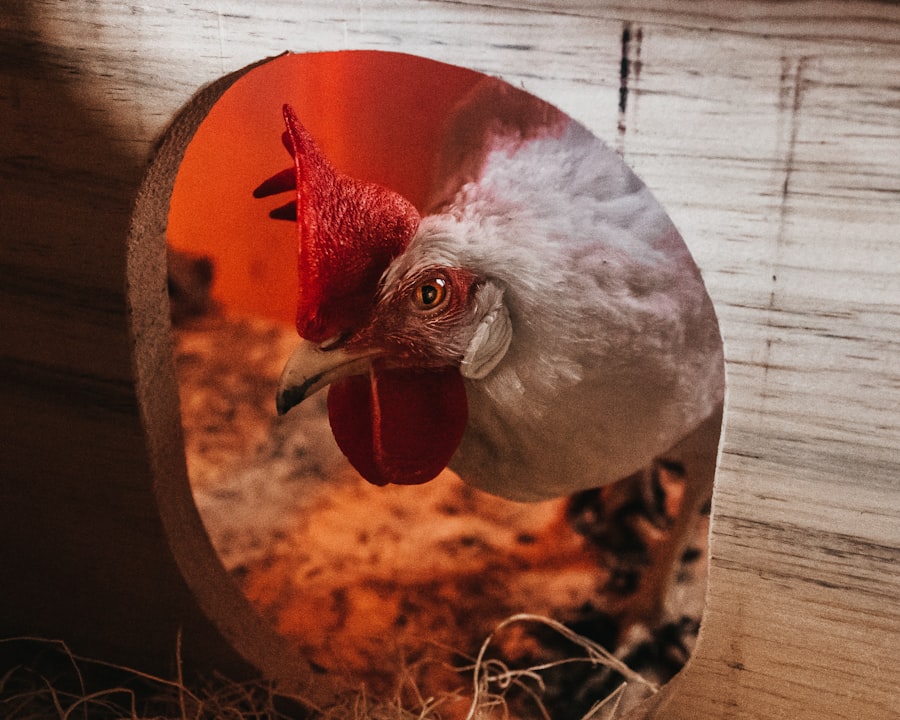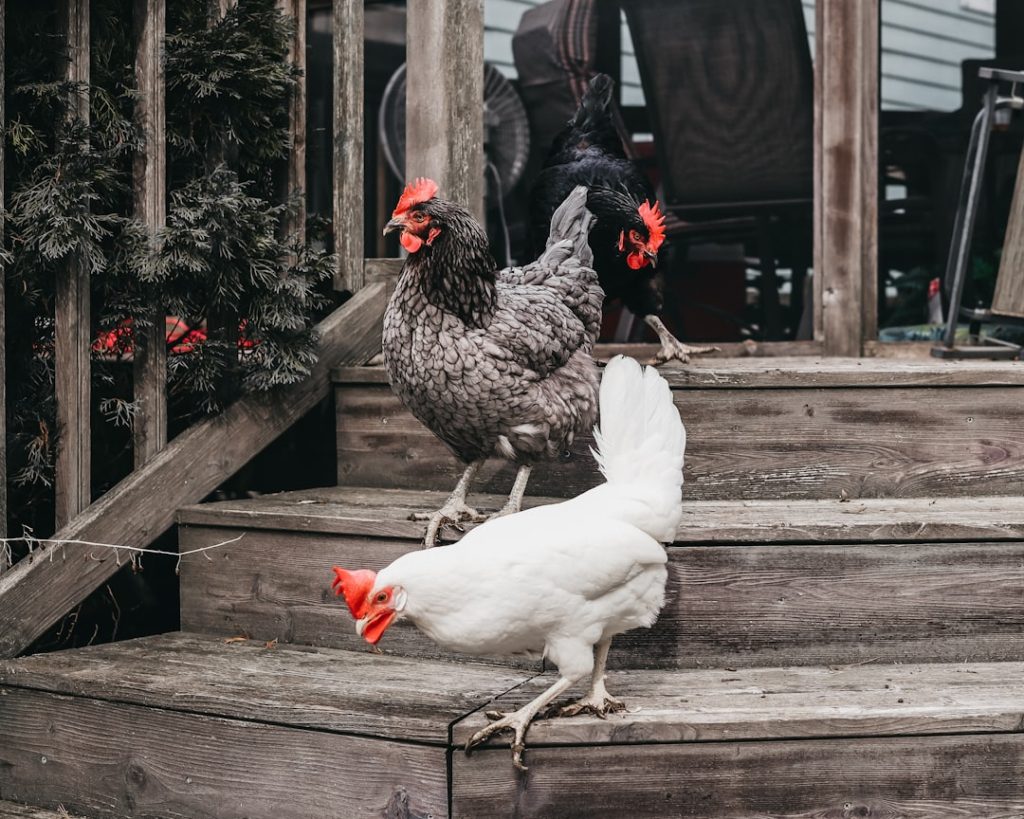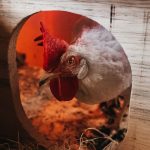When selecting a chicken breed for a backyard flock, several factors should be considered. Climate is a crucial element, as some breeds are better adapted to cold weather, while others thrive in warmer conditions. The intended purpose of the flock is also important; certain breeds are known for their egg-laying capabilities, while others are valued for meat production.
Temperament is another significant factor, especially for households with children or other pets. Some breeds are known for their docile and friendly nature, while others are more independent. The available space for the flock should also be taken into account, as certain breeds are better suited for free-ranging, while others can adapt well to smaller, confined areas.
By carefully evaluating these factors, including climate adaptability, purpose (egg-laying or meat production), temperament, and space requirements, individuals can choose a chicken breed that best meets their specific needs and circumstances. This approach ensures a more successful and satisfying experience with backyard chicken keeping.
Table of Contents
- 1 Building a Coop and Run
- 2 Providing Proper Nutrition and Water
- 3 Ensuring Proper Health Care
- 4 Managing Waste and Odor
- 5 Handling Predators and Pests
- 6 Integrating Chickens into Your Yard and Family Life
- 7 FAQs
- 7.1 What are the benefits of keeping chickens in the backyard?
- 7.2 What are the basic requirements for keeping chickens in the backyard?
- 7.3 What should be considered when building a chicken coop?
- 7.4 What do chickens eat and how should they be fed?
- 7.5 How can backyard chickens be kept healthy?
- 7.6 What are some common challenges of keeping chickens in the backyard?
Key Takeaways
- Consider the climate, space, and purpose for raising chickens when choosing the right breed
- Build a secure coop and run to protect chickens from predators and provide adequate space for exercise
- Provide a balanced diet and clean water to ensure the health and productivity of the chickens
- Regularly monitor and maintain the health of the chickens through vaccinations and proper hygiene practices
- Implement waste management systems and odor control to keep the coop clean and healthy for the chickens
Building a Coop and Run
Designing the Coop
Once you’ve chosen the right breed of chicken for your backyard flock, it’s time to think about building a coop and run for them to live in. The coop should provide a safe and comfortable environment for your chickens to roost and lay eggs. When building a coop, it’s important to consider factors such as ventilation, insulation, and predator-proofing. Proper ventilation will help keep the coop from becoming too hot or humid, while insulation will help keep it warm in the winter months. Additionally, it’s crucial to make sure that the coop is secure from predators such as raccoons, foxes, and birds of prey.
Creating a Functional Run
When it comes to building a run for your chickens, it’s important to provide them with enough space to move around and engage in natural behaviors such as scratching and dust bathing. You’ll also want to make sure that the run is secure from predators and that it provides protection from the elements. Additionally, consider adding features such as perches and nesting boxes to make the coop and run more comfortable and functional for your flock.
Key Considerations for a Happy and Healthy Flock
After selecting the right breed of chicken for your backyard flock, the next step is to build a coop and run that meets their needs. The coop should provide a safe and comfortable environment for your chickens to roost and lay eggs, while the run should give them space to move around and forage. By considering factors such as ventilation, insulation, and predator-proofing, you can create a happy and healthy environment for your flock.
Providing Proper Nutrition and Water

Proper nutrition is essential for keeping your backyard flock healthy and productive. A balanced diet for chickens typically includes a combination of commercial feed, grains, fruits, vegetables, and access to insects and other protein sources. It’s important to provide your chickens with a high-quality commercial feed that is specifically formulated for their age and purpose (e., laying hens or meat birds).
Additionally, offering supplemental treats such as scratch grains, mealworms, and kitchen scraps can help keep your chickens happy and healthy. In addition to proper nutrition, access to clean water is crucial for your flock’s well-being. Chickens need a constant supply of fresh water to stay hydrated and maintain their overall health.
Make sure to regularly clean and refill their waterers to prevent contamination and ensure that they always have access to clean water. By providing your chickens with a balanced diet and access to clean water, you can help ensure that they stay healthy and productive. Proper nutrition is vital for maintaining the health and productivity of your backyard flock.
A well-balanced diet for chickens typically consists of commercial feed, grains, fruits, vegetables, and access to insects and other protein sources. It’s important to provide your chickens with high-quality commercial feed that is specifically formulated for their age and purpose (e., laying hens or meat birds). Additionally, offering supplemental treats such as scratch grains, mealworms, and kitchen scraps can help keep your chickens happy and healthy.
In addition to proper nutrition, access to clean water is essential for your flock’s well-being. Chickens require a constant supply of fresh water to stay hydrated and maintain their overall health. Be sure to regularly clean and refill their waterers to prevent contamination and ensure that they always have access to clean water.
By providing your chickens with a balanced diet and access to clean water, you can help ensure that they stay healthy and productive.
Ensuring Proper Health Care
Just like any other pet or livestock animal, chickens require regular health care to stay healthy and free from disease. One of the most important aspects of chicken health care is disease prevention. This includes practices such as keeping the coop clean and dry, providing proper nutrition, and practicing good biosecurity measures.
Additionally, it’s important to monitor your flock for any signs of illness or injury and seek veterinary care when necessary. Another crucial aspect of chicken health care is parasite control. Chickens can be susceptible to parasites such as mites, lice, and worms, which can negatively impact their health and productivity.
Regularly inspecting your flock for signs of parasites and implementing a parasite control program can help keep your chickens healthy and thriving. In addition to disease prevention and parasite control, it’s important to provide routine care for your chickens such as trimming their nails and beaks as needed. By staying proactive about your flock’s health care needs, you can help ensure that they live long and healthy lives.
Similar to any other pet or livestock animal, chickens require regular health care to stay healthy and free from disease. Disease prevention is one of the most critical aspects of chicken health care. This includes practices such as keeping the coop clean and dry, providing proper nutrition, and practicing good biosecurity measures.
Additionally, it’s important to monitor your flock for any signs of illness or injury and seek veterinary care when necessary. Another crucial aspect of chicken health care is parasite control. Chickens can be susceptible to parasites such as mites, lice, and worms, which can negatively impact their health and productivity.
Regularly inspecting your flock for signs of parasites and implementing a parasite control program can help keep your chickens healthy and thriving. In addition to disease prevention and parasite control, it’s important to provide routine care for your chickens such as trimming their nails and beaks as needed. By staying proactive about your flock’s health care needs, you can help ensure that they live long and healthy lives.
Managing Waste and Odor
Proper waste management is an essential aspect of keeping a backyard flock. Chicken waste can quickly accumulate in the coop and run, leading to unpleasant odors and potential health hazards for your flock. To manage waste effectively, consider using materials such as straw or wood shavings as bedding in the coop, which can help absorb moisture and control odors.
Additionally, regularly cleaning out the coop and run will help prevent waste buildup and keep the environment clean and healthy for your chickens. Composting chicken waste is another effective way to manage waste while also creating nutrient-rich fertilizer for your garden or landscaping. By composting chicken manure along with other organic materials such as yard waste and kitchen scraps, you can create a valuable soil amendment that will benefit your plants while reducing waste.
By implementing proper waste management practices, you can help keep your backyard flock healthy while also minimizing odors and environmental impact. Proper waste management is crucial for maintaining a healthy environment for your backyard flock. Chicken waste can quickly accumulate in the coop and run, leading to unpleasant odors and potential health hazards for your flock.
To manage waste effectively, consider using materials such as straw or wood shavings as bedding in the coop, which can help absorb moisture and control odors. Additionally, regularly cleaning out the coop and run will help prevent waste buildup and keep the environment clean and healthy for your chickens. Composting chicken waste is another effective way to manage waste while also creating nutrient-rich fertilizer for your garden or landscaping.
By composting chicken manure along with other organic materials such as yard waste and kitchen scraps, you can create a valuable soil amendment that will benefit your plants while reducing waste. By implementing proper waste management practices, you can help keep your backyard flock healthy while also minimizing odors and environmental impact.
Handling Predators and Pests

Predators: A Significant Threat
Predators such as raccoons, foxes, hawks, and snakes can pose a significant threat to backyard flocks. To protect your chickens from predators, it’s important to implement measures such as securing the coop with sturdy locks or latches, installing predator-proof fencing around the run area, and using motion-activated lights or sound devices to deter nocturnal predators.
Pests: Another Common Problem
In addition to predators, pests such as mites, lice, flies, and rodents can also be problematic for backyard flocks. Regularly inspecting your coop and run for signs of pests and implementing pest control measures such as using diatomaceous earth or natural pest repellents can help keep your chickens safe from infestations.
Taking Proactive Measures
By taking proactive measures to handle predators and pests, you can help ensure the safety and well-being of your backyard flock. Regular inspections and prompt action can make all the difference in keeping your chickens healthy and happy.
Integrating Chickens into Your Yard and Family Life
Integrating chickens into your yard and family life can be a rewarding experience that provides numerous benefits beyond just fresh eggs or meat. Chickens can help control pests in the yard by eating insects such as ticks, beetles, grubs, and even small rodents. Their manure also makes an excellent fertilizer for gardens or landscaping when properly composted.
In addition to their practical benefits, chickens can also be enjoyable pets with unique personalities that bring joy to family members of all ages. Involving children in caring for the chickens can teach them responsibility while fostering a connection with nature. By integrating chickens into your yard and family life in a responsible manner, you can enjoy the many rewards that come with raising these fascinating creatures.
Integrating chickens into your yard and family life can be a rewarding experience that provides numerous benefits beyond just fresh eggs or meat. Chickens can help control pests in the yard by eating insects such as ticks, beetles, grubs, and even small rodents. Their manure also makes an excellent fertilizer for gardens or landscaping when properly composted.
In addition to their practical benefits, chickens can also be enjoyable pets with unique personalities that bring joy to family members of all ages. Involving children in caring for the chickens can teach them responsibility while fostering a connection with nature. By integrating chickens into your yard and family life in a responsible manner, you can enjoy the many rewards that come with raising these fascinating creatures.
If you’re interested in learning how to keep chickens in your backyard, you may also want to check out this article on turning a shed into a chicken coop. This article provides helpful tips and guidance on how to repurpose a shed into a suitable living space for your feathered friends. It’s a great resource for anyone looking to create a comfortable and functional home for their backyard chickens.
FAQs
What are the benefits of keeping chickens in the backyard?
Keeping chickens in the backyard can provide a sustainable source of fresh eggs, natural pest control, and fertilizer for the garden. Additionally, chickens can be a source of entertainment and companionship.
What are the basic requirements for keeping chickens in the backyard?
Basic requirements for keeping chickens in the backyard include a secure coop or housing, access to fresh water, proper nutrition, and protection from predators. It is also important to check local regulations and obtain any necessary permits or licenses.
What should be considered when building a chicken coop?
When building a chicken coop, it is important to consider the size and layout to provide adequate space for the chickens to roost, nest, and move around. The coop should also have proper ventilation, insulation, and protection from the elements and predators.
What do chickens eat and how should they be fed?
Chickens require a balanced diet that includes a combination of commercial feed, grains, fruits, vegetables, and access to insects and other natural forage. It is important to provide access to fresh water at all times and to ensure that the chickens are receiving the necessary nutrients for their health and egg production.
How can backyard chickens be kept healthy?
To keep backyard chickens healthy, it is important to provide regular access to clean water, a balanced diet, and a clean living environment. Additionally, regular health checks, vaccinations, and parasite control should be implemented as recommended by a veterinarian.
What are some common challenges of keeping chickens in the backyard?
Common challenges of keeping chickens in the backyard include predator attacks, disease outbreaks, and managing waste and odor. Additionally, noise and local regulations may also pose challenges for backyard chicken keepers.
Meet Walter, the feathered-friend fanatic of Florida! Nestled in the sunshine state, Walter struts through life with his feathered companions, clucking his way to happiness. With a coop that’s fancier than a five-star hotel, he’s the Don Juan of the chicken world. When he’s not teaching his hens to do the cha-cha, you’ll find him in a heated debate with his prized rooster, Sir Clucks-a-Lot. Walter’s poultry passion is no yolk; he’s the sunny-side-up guy you never knew you needed in your flock of friends!







